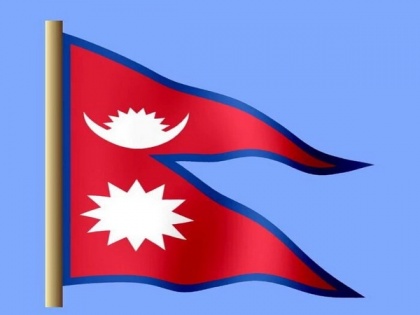People in Nepal learn to survive COVID-19 on their own due to govt instability
By ANI | Published: October 4, 2020 06:33 PM2020-10-04T18:33:18+5:302020-10-04T18:45:02+5:30
The constant rifts in the Nepal Communist Party (NCP) have taken people to a point where they have learnt to survive the ill-effects of COVID-19 on their own, reports Mizzima.

People in Nepal learn to survive COVID-19 on their own due to govt instability
The constant rifts in the Nepal Communist Party (NCP) have taken people to a point where they have learnt to survive the ill-effects of COVID-19 on their own, reports Mizzima.
"Constant rifts in the ruling Nepal Communist Party (NCP) due to lack of coordination between the party orgsation and government have complicated matters to a point where the people have learnt to survive the ill effects of the COVID-19 pandemic on their own, without recourse to any government assistance," Maung Mya Thar said in an article in Mizzima.
The scribe went on to say that in the last two years, no step was taken to "cement political stability" and address the demands of the people.
"The tragedy is that the Oli-led government has failed to bring about the requisite policy and governance changes. This has been compounded by widespread corruption in government and the frequent transfer of officials and bureaucrats on the basis of their political loyalty has wrecked the administrative system," Thar wrote.
According to the Central Bureau of Statistics, it was projected (August 2020) that the country's economy would grow at 2.27 per cent this fiscal year and a massive deceleration from the government's projected 8.5 per cent target. But in contrast, Nepal's economy has been hit and unemployment has also increased.
"The World Bank's country report for Nepal (12 April 2020) predicts that economic growth is expected to fall in Nepal to a range between 1.5 and 2.8 per cent in FY2020 reflecting lower remittances, trade and tourism, and broader disruptions caused by the COVID-19 outbreak. A prolonged outbreak of COVID-19 is likely to affect growth significantly with a further deceleration or contraction in services and industrial production," the scribe wrote.
The Nepal government had announced a nationwide lockdown to curb the spread of COVID-19 in the country which has affected industrial and agricultural production resulting in a more than a 25 percentage point decline in capacity utilisation of the industry by early June 2020 and a 64.7 per cent (y/y) drop in credit provision to the private sector during the two-month lockdown period.
"A domestic outbreak of COVID-19 in May 2020 prolonged the lockdown and imposed substantial human and further economic costs. Growth in the service sector is now estimated at 1 per cent, the lowest since FY2002, while growth in the industrial sector is estimated at 3.2 per cent, a four-year low, due to the deceleration in overall growth," Thar added.
The pandemic also brought about a major impact to the tourism sector in the country as well "with arrivals from China dropping by around 70 per cent in February 2020 and a full stop to the issuance of visitor visas taking effect in early March 2020, which has effectively dropped tourist arrivals to zero".
"The government should have by now ended the political uncertainty and focused on combating COVID-19. But party leaders have invested more time and energy to settle internal rifts than tackle the pandemic," the scribe wrote.
"What China has done is to take advantage of the inadequacy of government delivery systems for essentials and medicines and tapped the commodity shortage crisis by opening two of its land border crossings with Nepal to transport medical equipment and other essentials to Nepal, "Thar added.
The current tussle within the NCP is "at the heart" of Nepal's ongoing crisis but this is not the first time since the Himalayan Nation's government has seen trouble due to internal party conflict.
"This is not the first time in Nepal's political history that a government has been in trouble because of inner-party conflict. All governments, after the restoration of democracy in 1990, have collapsed due to rifts in the party...The challenge for Nepal today, therefore, is two-fold; mis-governance and instability. Both are recipes for disaster. It is hoped that Nepal will see the light at the end of the tunnel sooner rather than later," Thar wrote.
( With inputs from ANI )
Disclaimer: This post has been auto-published from an agency feed without any modifications to the text and has not been reviewed by an editor
Open in app